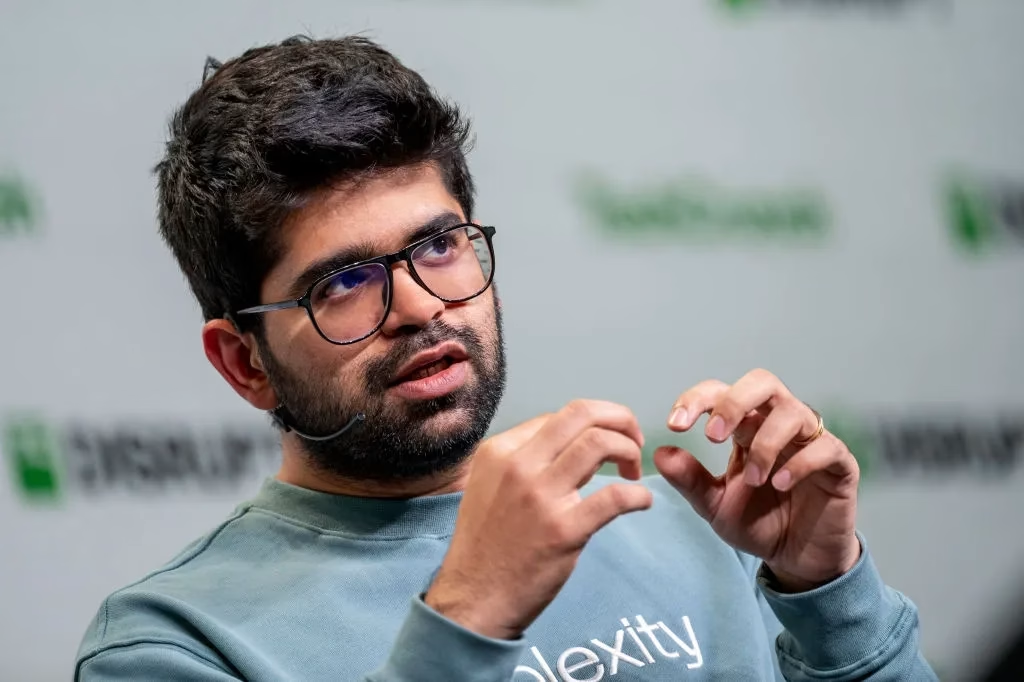The Browser: AI's Unexpected Killer App, According to Perplexity's CEO
The world of artificial intelligence is moving at a dizzying pace, and if you're anything like me, you're probably already leaning on tools like ChatGPT for quick answers. But what if the next big leap for AI isn't in a standalone chatbot, but right where we spend most of our digital lives? That's the compelling argument Aravind Srinivas, CEO of Perplexity, is making, and it's a vision that's truly shaking up how we think about web interaction. He believes the web browser, reimagined, is AI's ultimate "killer app."
Why the Browser is the Ideal Home for AI Agents
Comet: Perplexity's Bold Bet on an AI-Native Browser
This philosophy is embodied in Perplexity's new web browser, Comet, currently in an invite-only beta for Mac and Windows. Built on Chromium, the open-source foundation of Chrome, Comet feels instantly familiar. And that's by design. Srinivas points out that reinventing the core rendering engine would be pointless. Chromium is a robust, open-source project with a dominant market share, and Perplexity even aims to contribute back to it.
The real magic, however, lies in Comet's "sidecar" AI assistant. This isn't just another browser extension; it's an orchestration layer that lives alongside any webpage. It's connected to your Gmail, calendar, and other services, allowing it to pull context and take action directly. For instance, instead of watching an entire YouTube video to find a specific quote, the sidecar can instantly retrieve the relevant snippet and even play it from that exact timestamp. Or, navigating LinkedIn's notoriously difficult search? The agent can figure out the shortcuts and filters to give you recruiting power that, frankly, is better than LinkedIn Premium.
The Road Ahead: Challenges and Ambitious Visions
Of course, Comet is still early days, and it's not without its quirks. As an early user, I've noticed a certain "brittleness" for longer, more complex tasks. Asking it to compile an exhaustive list of engineers from specific universities who worked at particular companies, complete with LinkedIn URLs and email addresses, and then drafting personalized cold emails? That's a multi-step process that Comet can only partially handle right now. You're still the orchestrator, stitching things together.
But Srinivas is incredibly optimistic. He's betting on rapid advancements in reasoning models—perhaps a GPT-5 or Claude 4.5—to bridge this gap within six months to a year. His vision is for Comet to evolve into something more akin to an operating system, where AI "processes" run proactively in the background, making your digital life significantly easier. Imagine an agent that not only sources candidates but also tracks their responses, updates your Google Sheets, syncs with your calendar, and even pushes meeting briefs to you. That's the ambition.
Business Model and the Competitive Landscape
Running such a compute-intensive product isn't cheap. Perplexity, being venture-backed, needs a sustainable business model. Srinivas envisions a usage-based pricing model for high-value tasks. If an AI agent can save you hours of work or give you a significant competitive advantage—like optimizing Meta ad campaigns or analyzing AdWords pricing—paying a few thousand dollars for a single, complex prompt suddenly makes a lot of sense. It's about monetizing cognitive labor, turning the browser into a "personal AWS cluster" for your tasks.
Perplexity isn't trying to win the "chatbot race," which Srinivas believes is largely over. Instead, they're focused on search and agents, seeing the browser as a much larger, stickier prize. This explains why other major players, like OpenAI, are also rumored to be developing their own browsers. Srinivas acknowledges the challenges of competing with giants like Google, who have deep-seated agreements with device manufacturers. He's hopeful that antitrust actions, like the DOJ's case against Google, could level the playing field, potentially even forcing a Chrome spinoff.
The AI talent market is another fascinating aspect. Srinivas commented on the "transfer market" feel, with astronomical compensation offers from companies like Meta. While money is a factor, he emphasizes that mission alignment, a thriving work environment, and continuous growth are crucial for retaining top talent.
Looking three years out, Srinivas hopes Perplexity becomes the go-to tool for getting anything done, deeply connected to users' contexts, proactively thinking on their behalf, and simplifying their lives. It's an ambitious goal, but one that could fundamentally redefine our relationship with the web.
